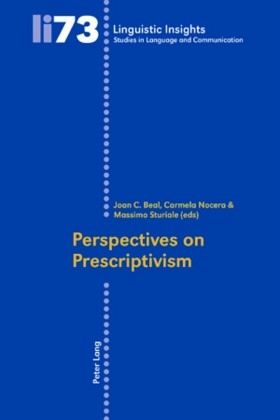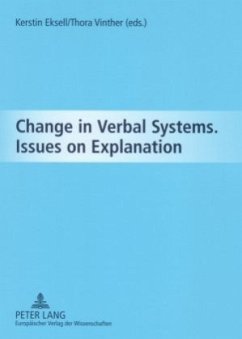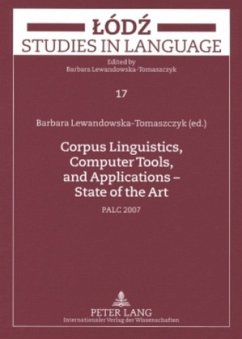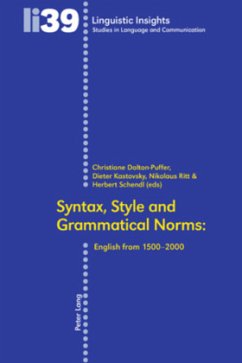
Perspectives on Prescriptivism
Versandkostenfrei!
Versandfertig in 6-10 Tagen
102,85 €
inkl. MwSt.

PAYBACK Punkte
0 °P sammeln!
The colloquium Perspectives on Prescriptivism (20-22 April 2006) was hosted by the University of Catania - Faculty of Foreign Languages - in Ragusa. Until very recently, the received view among linguists was that prescriptivism was a 'bad thing', something only worth considering in order to condemn it as a product of unenlightened thinking. The organisers wished to encourage participants to look at linguistic prescriptivism from a wide range of perspectives. Some of the main questions asked were: To what extent is the concept of prescriptivism to be considered a typical product of the 18th cen...
The colloquium Perspectives on Prescriptivism (20-22 April 2006) was hosted by the University of Catania - Faculty of Foreign Languages - in Ragusa. Until very recently, the received view among linguists was that prescriptivism was a 'bad thing', something only worth considering in order to condemn it as a product of unenlightened thinking. The organisers wished to encourage participants to look at linguistic prescriptivism from a wide range of perspectives. Some of the main questions asked were: To what extent is the concept of prescriptivism to be considered a typical product of the 18th century? What is the attitude of 21st-century scholars and language guardians towards linguistic 'correctness'? To what extent were books more prescriptive - rather than descriptive - in what has generally been described as 'the age of correctness'? Some of the answers are to be found in this volume.












